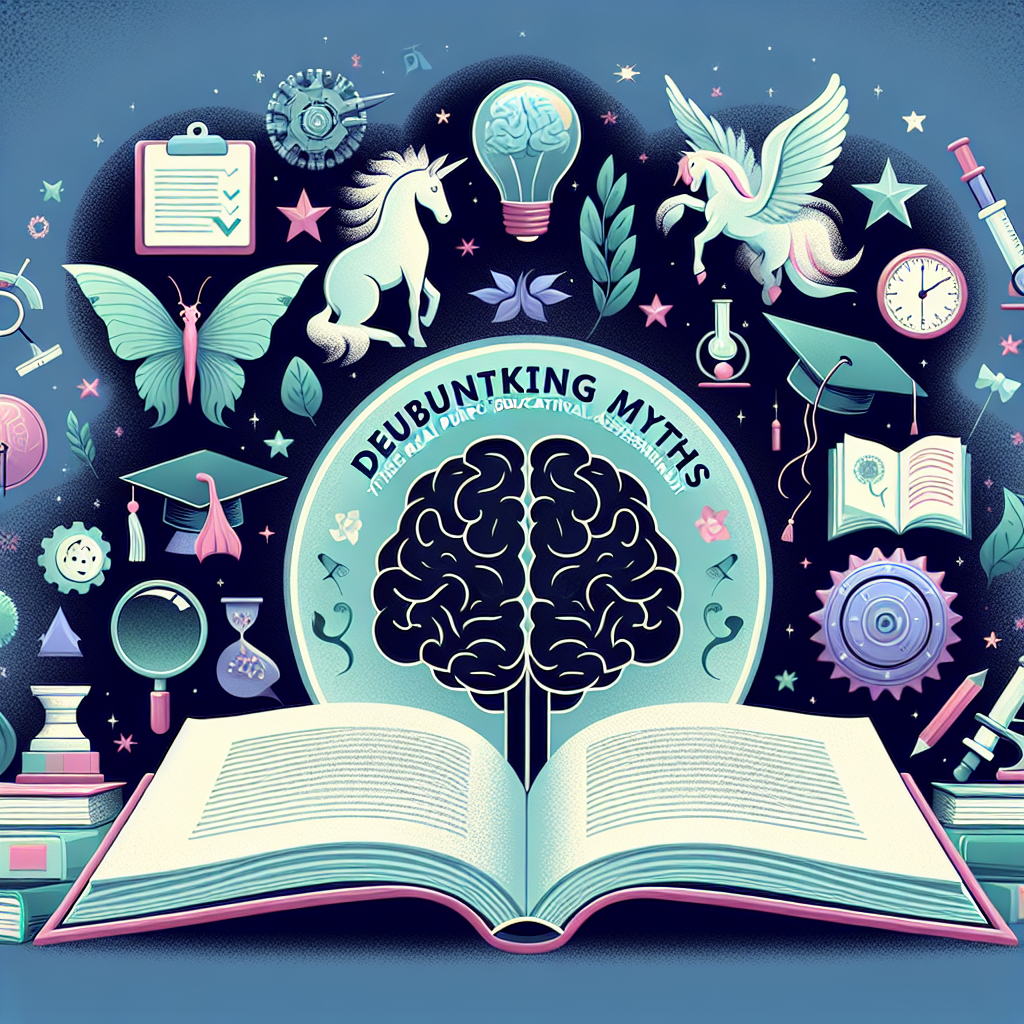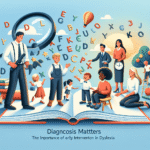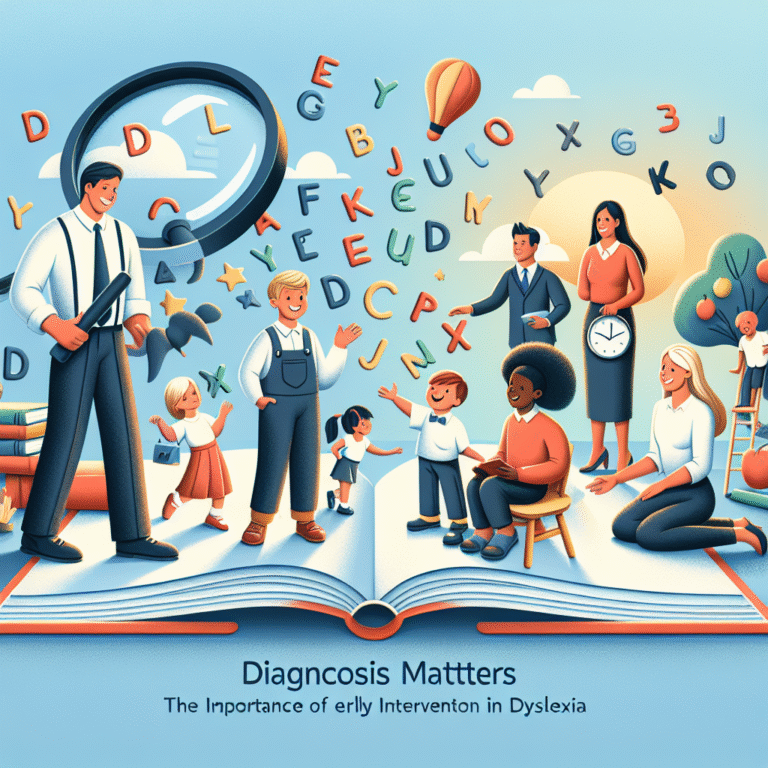
Introduction
In our fast-paced world, education and mental health have become critical focal points in nurturing successful individuals. Yet, many misconceptions surround psychoeducational assessments, which serve as vital tools in understanding student needs. The phrase "Debunking Myths: The Real Purpose of Psychoeducational Assessment" weaves a narrative that challenges false beliefs while shedding light on its authentic role. This article aims to illuminate the truths that lie beneath the surface of common myths, transforming fears into knowledge and misunderstanding into clarity.
Understanding Psychoeducational Assessment
What is Psychoeducational Assessment?
Before diving into the myths that obscure its purpose, let’s clarify the essence of psychoeducational assessment. A psychoeducational assessment is a comprehensive evaluation of a student’s cognitive abilities, academic skills, emotional functioning, and social capabilities. It serves multiple purposes, including identifying learning disabilities, assessing giftedness, and guiding evidence-based interventions.
The Key Components of Assessment
| Component | Description |
|---|---|
| Cognitive Testing | Measures intellectual abilities and learning styles. |
| Achievement Testing | Evaluates academic skills in reading, writing, and math. |
| Social-Emotional Assessment | Assesses factors like behavior and mental health. |
| Observational Data | Provides context through in-class behavior and performance. |
This multi-faceted nature of psychoeducational assessments underscores their essential role in shaping personalized educational paths for students.
Debunking Common Myths
Myth 1: Psychoeducational Assessments are Only for Diagnosing Learning Disabilities
One of the most pervasive myths is that psychoeducational assessments exist solely for the purpose of diagnosing learning disabilities. In reality, while identifying such disabilities is a significant function, the assessments provide a more holistic understanding of a student’s strengths and weaknesses. They help educators craft personalized strategies that support diverse learning needs.
Case Study: Sarah’s Journey
Sarah, a bright student who struggled with organization and time management, was hesitant to undergo an assessment for fear of a learning disability label. However, the assessment revealed not a disability, but a unique profile of strengths and weaknesses that allowed her teachers to implement tailored organizational strategies. Thus, psychoeducational assessments empowered Sarah instead of limiting her.
Myth 2: Psychoeducational Assessments are Just a Series of Tests
Another misconception is that these assessments are merely standardized tests. In fact, psychoeducational assessments comprise multiple avenues of evaluation, including interviews, observational studies, and standardized testing. This multifaceted approach allows for a more nuanced understanding of a student’s educational needs.
Case Study: The Whole Picture
Consider Jake, an eighth-grader whose grades dipped despite high intelligence. Teachers presumed he lacked motivation. However, a thorough psychoeducational assessment, incorporating observations and reports from home, identified emotional stressors as the root cause. The assessment yielded a holistic view—beyond mere test scores—with collaborative strategies for support.
Myth 3: Parents Should Avoid Psychoeducational Assessments
Some parents mistakenly view psychoeducational assessments as punitive or alarming. They fear the outcomes may label or stigmatize their children. On the contrary, the ultimate goal of these assessments is to empower students and provide them with the tools they need to succeed academically and emotionally.
Myth 4: Only Educators Benefit from Psychoeducational Assessments
While educators deeply utilize the insights gained from psychoeducational assessments, the true beneficiaries are the students themselves. The tailored recommendations emanating from assessments can help students thrive, allowing them to unlock their potential and embrace their individuality.
Myth 5: Psychoeducational Assessments Are Inaccurate or Biased
Concerns about bias and inaccuracies often plague the topic of psychoeducational assessments. However, these assessments are designed to be valid and reliable. Trained professionals conduct assessments, utilizing contemporary tools and data to ensure precision. These measures include multiple perspectives rather than resting solely on standardized tests.
The Comprehensive Benefits of Psychoeducational Assessments
Personalized Learning Plans
From the insights derived from assessments, educators can create Personalized Learning Plans (PLPs) that take a child’s unique learning profile into consideration. For instance, a student identified with strengths in visual learning and weaknesses in auditory processing could benefit from a more visually-oriented curriculum.
Enhanced Teacher-Parent Collaboration
Psychoeducational assessments foster collaboration among educators, parents, and students—enhancing the support system surrounding a child. By sharing insights, all parties can work together to stay aligned in the student’s academic journey.
Emotional and Social Support
Beyond academic implications, these assessments play a crucial role in identifying emotional and social challenges. This awareness can open up interventions that support the child holistically, addressing more than just academic needs.
Real-World Applications of Psychoeducational Assessments
Case Study Analysis: Nathan’s Neurodiversity
Nathan, a neurodiverse child, faced challenges in traditional educational settings. After undergoing a psychoeducational assessment, he received recommendations for modifications that accommodated his needs. The result? Nathan thrived in an alternative learning environment, showcasing exceptional talents in creative writing while managing his unique neurological profile.
Table of Outcomes Before and After Assessment
| Area | Before Assessment | After Assessment |
|---|---|---|
| Grades | C’s and D’s | A’s and B’s |
| Social Skills | Isolated, few friendships | Formed connections, engaged in group tasks |
| Emotional State | Anxious, overwhelmed | More relaxed, proactive |
Understanding the Assessment Process
Who Conducts Assessments?
Typically, a licensed psychologist or school psychologist conducts these assessments. Their expertise is essential for ensuring the tests are administered appropriately and the results interpreted correctly.
What to Expect During an Assessment?
- Intake Interview: Gather comprehensive background information from parents and teachers.
- Testing Phase: Administer various assessments focusing on cognitive skills and academic abilities.
- Feedback Session: A summary session where results are explained, and recommendations are made.
Conclusion
In the landscape of education and mental health, the role of psychoeducational assessments is profound and multifaceted. By debunking myths and shedding light on the actual purpose of psychoeducational assessment, we empower not only students but also educators and parents. Awareness is the first step; knowledge translates into action.
The purpose of psychoeducational assessments is clear: to provide insight, understanding, and ultimately, a pathway for success. As you leave this discussion, remember that these assessments can illuminate the path toward unlocking potential, paving the way to meaningful educational experiences.
FAQs
1. What is the main goal of a psychoeducational assessment?
The primary goal is to understand a student’s cognitive, academic, and emotional functioning to support their learning and development effectively.
2. Are psychoeducational assessments invasive?
No, psychoeducational assessments are non-invasive and designed to be comfortable for students, utilizing a range of techniques beyond just standardized tests.
3. How long does the assessment process take?
The process can take anywhere from a few hours to several sessions, depending on the complexity of the needs being assessed.
4. Can a psychoeducational assessment be repeated?
Yes, assessments can be repeated as needed, especially if the student’s circumstances change or new concerns arise.
5. Who receives the results of the assessment?
Typically, parents, educators, and the student (if appropriate) receive the results. The information is shared in a way that promotes understanding and growth, not labeling.
In the journey ahead, let this be your compass—to navigate the sometimes-rough waters of educational assessments with clarity and confidence.
















